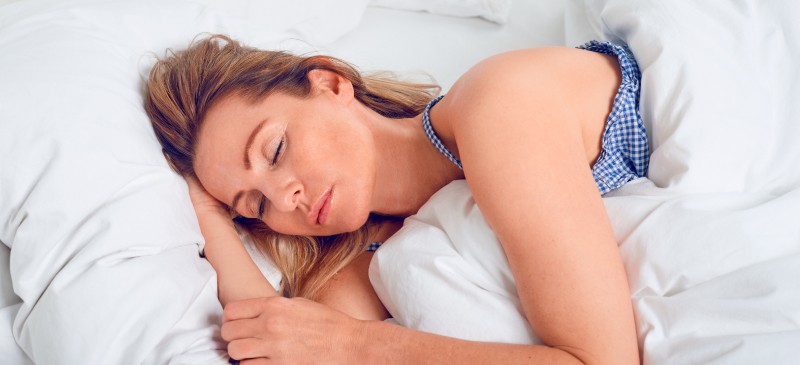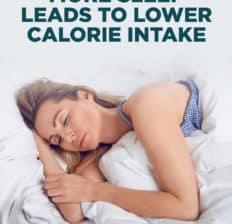This Dr. Axe content is medically reviewed or fact checked to ensure factually accurate information.
With strict editorial sourcing guidelines, we only link to academic research institutions, reputable media sites and, when research is available, medically peer-reviewed studies. Note that the numbers in parentheses (1, 2, etc.) are clickable links to these studies.
The information in our articles is NOT intended to replace a one-on-one relationship with a qualified health care professional and is not intended as medical advice.
This article is based on scientific evidence, written by experts and fact checked by our trained editorial staff. Note that the numbers in parentheses (1, 2, etc.) are clickable links to medically peer-reviewed studies.
Our team includes licensed nutritionists and dietitians, certified health education specialists, as well as certified strength and conditioning specialists, personal trainers and corrective exercise specialists. Our team aims to be not only thorough with its research, but also objective and unbiased.
The information in our articles is NOT intended to replace a one-on-one relationship with a qualified health care professional and is not intended as medical advice.
Does More Sleep Lead to Lower Calorie Intake?
March 7, 2022

Health experts have considered the relationship between sleep and calorie intake for a long time, pinpointing sleep deprivation a risk factor for obesity, but there hasn’t been extensive research on if sleep can directly affect how much someone eats. That is until now.
A new study published Feb. 7, 2022, in JAMA Internal Medicine wanted to answer a simple question: What is the effect of sleep extension on objectively assessed energy intake in overweight adults in their usual home environments?
“Over the years, we and others have shown that sleep restriction has an effect on appetite regulation that leads to increased food intake, and thus puts you at risk for weight gain over time,” said Esra Tasali, MD, director of the UChicago Sleep Center at the University of Chicago Medicine. “More recently, the question that everyone was asking was, ‘Well, if this is what happens with sleep loss, can we extend sleep and reverse some of these adverse outcomes?”
What the researchers found was that, in a real-world setting, extending sleep duration did in fact help lead to less calorie intake, and experts hope to examine the relationship between sleep and calorie intake even further.
Study: Sleep and Calorie Intake
To explore the relationship between sleep and calorie intake, researchers from the University of Chicago and University of Wisconsin–Madison performed a randomized, clinical trial with young, overweight 80 adults (aged 21–40) who regularly slept less than 6.5 hours per night. Subjects were put into either the control group or provided personalized sleep hygiene counseling sessions following a two-week baseline examination.
The subjects provided the sleep intervention counseling had the goal of increasing sleep to 8.5 hours per night, while the control group subjects continued their regular sleep schedules.
What the authors found was that those who underwent sleep counseling were able to add an additional 1.2 hours of sleep per night. Even more interestingly, they consumed an average of 270 less calories per day with that extra hour-plus of sleep.
If those people were able to maintain that extra 1.2 hours of sleep over a three-year period, that would translate to about roughly 26 pounds of weight loss.
The study authors concluded:
The findings suggest that improving and maintaining adequate sleep duration could reduce weight and be a viable intervention for obesity prevention and weight loss programs.
… This trial found that sleep extension reduced energy intake and resulted in a negative energy balance in real-life settings among adults with overweight who habitually curtailed their sleep duration. Improving and maintaining healthy sleep duration over longer periods could be part of obesity prevention and weight loss programs.
Tasali added: “Most other studies on this topic in labs are short-lived, for a couple of days, and food intake is measured by how much participants consume from an offered diet,” said Tasali. “In our study, we only manipulated sleep, and had the participants eat whatever they wanted, with no food logging or anything else to track their nutrition by themselves.
“… We saw that after just a single sleep counseling session, participants could change their bedtime habits enough to lead to an increase in sleep duration. We simply coached each individual on good sleep hygiene, and discussed their own personal sleep environments, providing tailored advice on changes they could make to improve their sleep duration. Importantly, to blind participants to sleep intervention, recruitment materials did not mention sleep intervention, allowing us to capture true habitual sleep patterns at baseline.”
Tips to Improve Sleep
If you’re always tired and feeling sluggish, more quality sleep certainly can help. Turns out, it may help you eat less too.
Try these natural sleep aids to help get a solid seven to nine hours of sleep each night to improve virtually every aspect of your health:
- Consume more sleep-promoting foods. These include calcium-rich foods, magnesium-rich foods and foods that contain tryptophan.
- Try essential oils for sleep, such as bergamot, lavender, sandalwood, frankincense and mandarin oils.
- Use herbal supplements for sleep, such as passion flower, valerian root and St. John’s wort.
Conclusion
- Researchers from the University of Chicago and University of Wisconsin–Madison wanted to find the answer to the question: What is the effect of sleep extension on objectively assessed energy intake in overweight adults in their usual home environments?
- The study found that when young, overweight adults were able to increase their nightly sleep duration by 1.2 hours, they consumed an average of 270 less calories per day.
- These findings show a promising relationship between sleep and calorie intake.
- To get help improve your sleep to get a solid seven to nine hours each night, eat more sleep-promoting foods, try essential oils for sleep and use sleep-inducing herbs.



